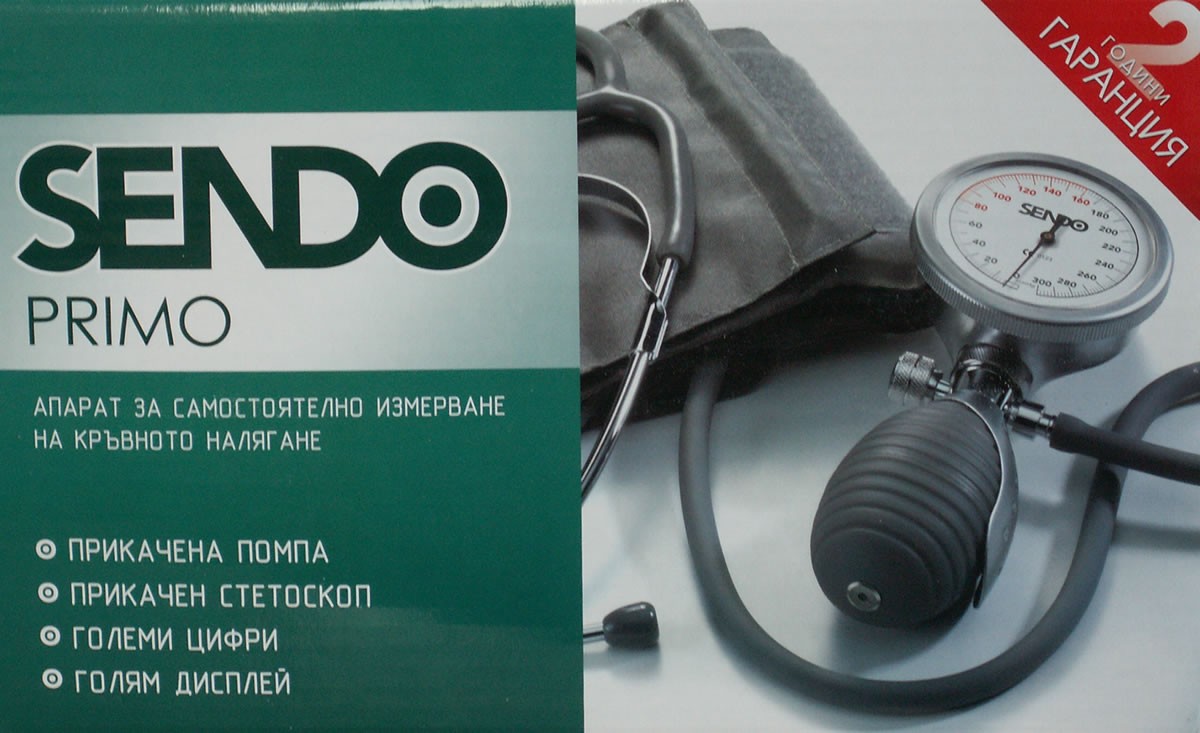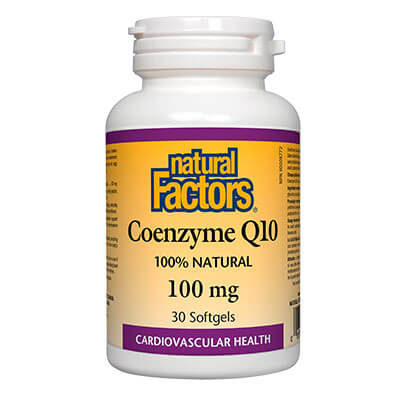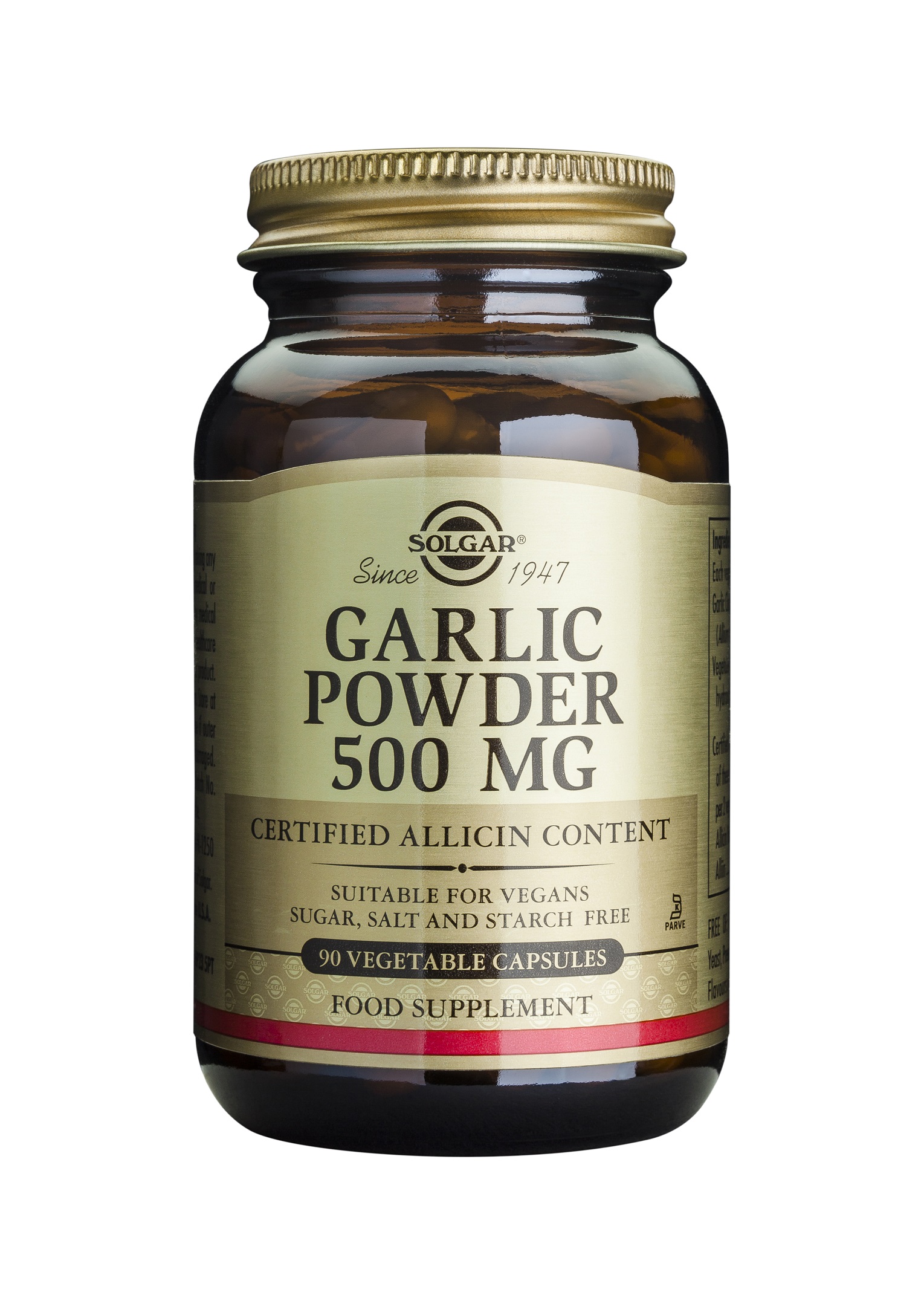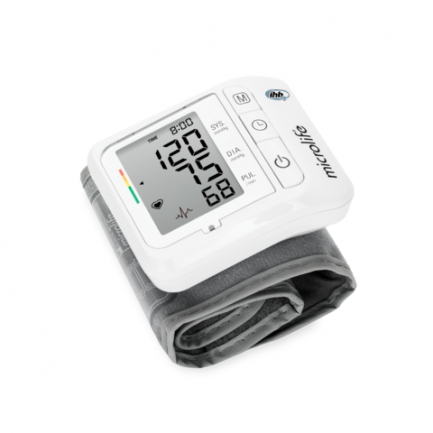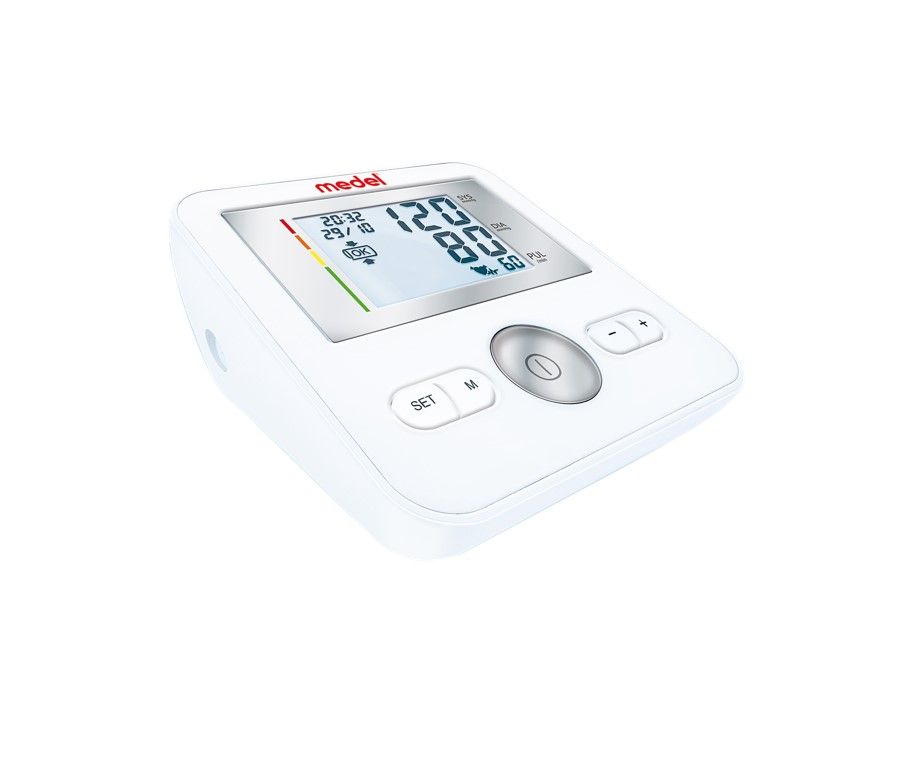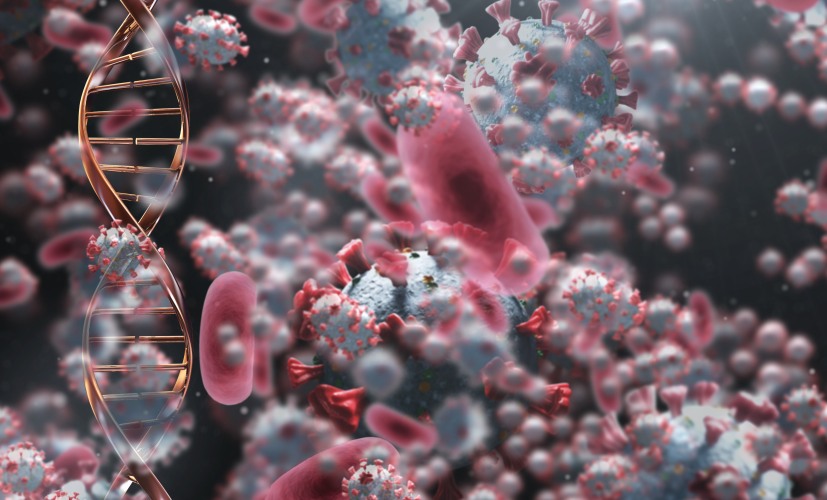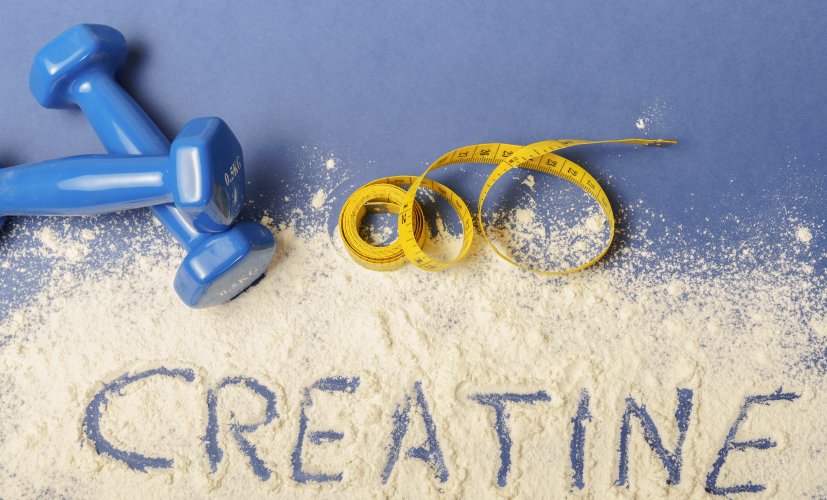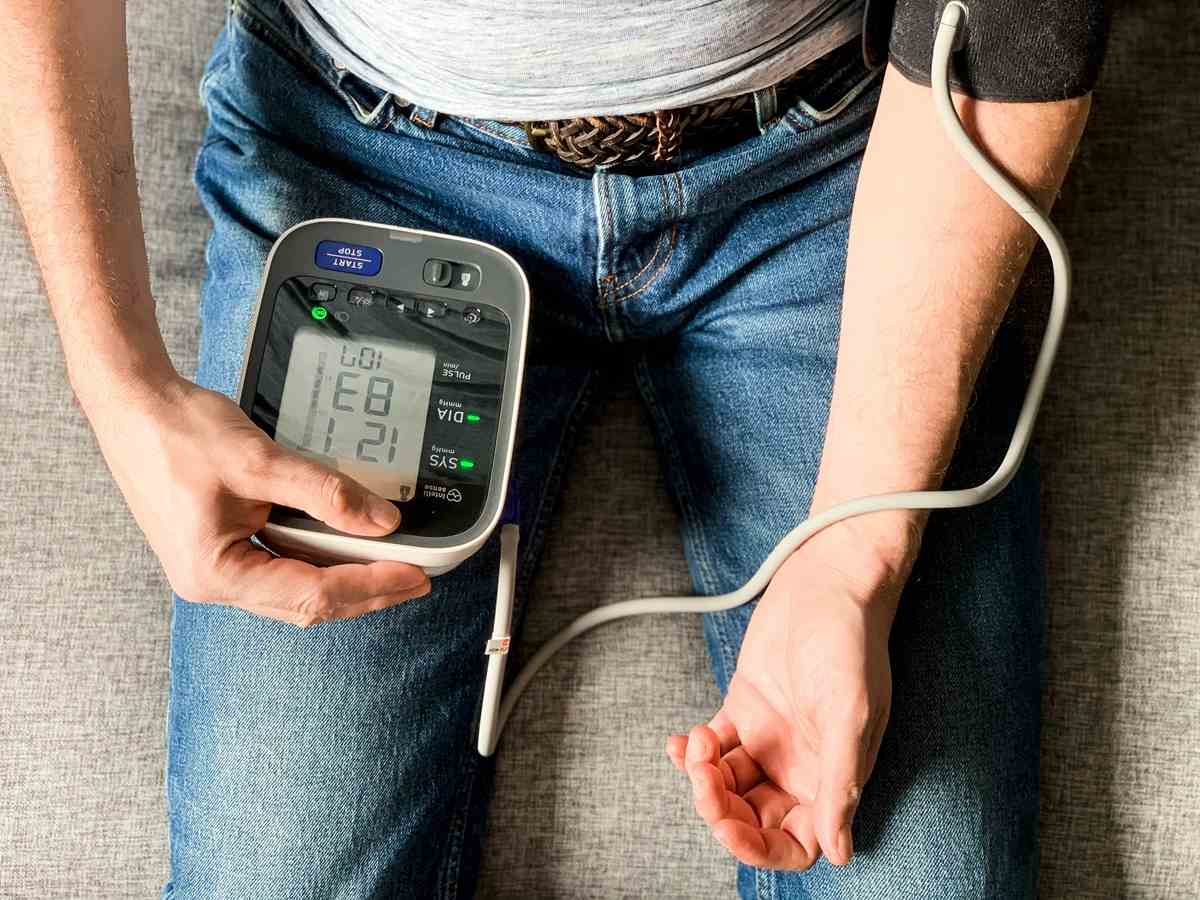
High blood pressure, sometimes called hypertension, is a common condition. In it, the walls of the arteries are constantly subjected to greater than usual pressure during the pumping of blood.
People with high blood pressure are usually unaware that they have this insidious and dangerous problem. This is due to the fact that it rarely has symptoms that would signal an irregularity in the body.
In this article, we will consider the issue of lowering high blood pressure in more detail, paying attention to the symptoms and factors of its occurrence.
What is high blood pressure?
High blood pressure and hypertension are used as synonyms in everyday life. However, these are two different conditions that you must be able to distinguish.
High blood pressure can occur in any person after sports or other physical exertion, for example. This is due to the increased activity of the cardiovascular system, which normalizes when the body is already at rest.
Hypertensive sufferers have high blood pressure permanently. In them, the cardiac activity is significantly strained, which forces the heart to work harder to pump blood.
Generally, blood pressure is divided into five categories. They are:
low blood pressure - pressure at which the upper limit is a number less than 90 and the lower is a number less than 60;
normal blood pressure - blood pressure is around or slightly lower than 120/80;
increased blood pressure - the upper limit varies between 120 and 129, and the lower limit is below 80;
first stage of hypertension - the upper limit varies between 130 and 139, and the lower is between 80 and 89;
second stage of hypertension - the upper limit is 140 or more, and the lower is 90 or more;
If your blood pressure reaches values above 180 / 120, seek medical help immediately. Neglecting this condition can lead to heart attack, stroke, heart or kidney failure, as well as other serious health problems.
It is recommended that everyone over the age of 18 see a doctor to have their blood pressure checked at least once every two years. In some cases, more frequent examinations are required, and this happens at the discretion of the doctor.
Symptoms of high blood pressure
As already stated, the majority of people with high blood pressure have no symptoms. This applies even to cases where blood pressure reaches dangerous levels that require emergency medical intervention. It is possible to have high blood pressure for years without it interfering with your life and the performance of your daily duties.
However, in some cases there are symptoms that suggest that the blood pressure is higher than normal. Some of them are:
severe headaches;
chest pain and/or tightness;
vertigo;
difficult breathing;
nausea;
vomiting;
blurred vision;
unusual anxiety;
feeling confused;
noise in the ears;
nosebleeds;
abnormal heart rhythm.
If you experience any of these symptoms, don't ignore them. High blood pressure or another serious problem can be hidden behind them.
Causes of high blood pressure
To get to the answer to the question of how to lower your blood pressure, it is important to be aware of the reason why it is elevated. In the following lines, we will pay attention to some of the factors that can become an occasion for an increase in blood pressure.
Age
Age is among the main causes of high blood pressure. As you age, the chance of experiencing blood problems increases. It is typical for people of advanced age to experience difficulties with physical activity, which further increases the risk of developing this condition.
Inheritance
High blood pressure is sometimes inherited. In case there are people in your family tree who suffer or have suffered from high blood pressure, there is a possibility that you too have this problem.
Climate
Climate and seasons have an effect on blood pressure. Most often, the blood level rises during the cold months of the year, and falls during the warm ones. This is due to the fact that temperatures have an effect on the contraction and expansion of blood vessels.
Overweight
Gaining weight is among the key factors in the onset of a number of health conditions. One of them is high blood pressure. Excess weight leads to narrowing of blood vessels, which in turn complicates the activity of the cardiovascular system.
Gender
Gender also matters when it comes to high blood pressure. Usually, older men are prone to this condition. Women, especially those over the age of 60, are also at risk of high blood pressure, but it is less common.
Lack of physical activity
Inactivity, like being overweight, is one of the main causes of a number of health problems. If you are among the people who lead a stagnant lifestyle, then you are at risk of high blood pressure. Try incorporating movement into your daily routine as it's a good way to get more oxygen into your blood and boost your circulation.
Alcohol
Alcohol, taken often and in large quantities, leads to an increase in blood pressure. It is recommended to avoid alcohol consumption to maintain good health and blood pressure control.
Smoking
Smoking is a harmful habit that narrows blood vessels. It also reduces the amount of oxygen in the blood, which in turn makes it harder for the heart to work. The strain on this organ also leads to an increase in blood pressure.
Fat consumption
Fat intake can also be a factor in raising blood pressure. Some fats, such as those of vegetable origin for example, are beneficial. These are fats from avocados, nuts, and fish products. However, other fats, especially processed ones, are harmful to the human body. If you consume a large amount of them, it is very likely to lead to high blood pressure.
Possible complications
High blood pressure can lead to some complications if not controlled or treated. It can damage the blood vessels as well as affect some of the vital organs in the body. Among the possible consequences caused by it are:
heart attack;
stroke;
heart failure;
aneurysm;
kidney problems;
problems with dewing;
vision problems;
memory and brain activity problems.
To avoid such scenarios, it is important to monitor your blood pressure regularly. Of course, sometimes it is impossible to visit a doctor to do it. That is why it is advisable to have a good quality blood pressure monitor with which you can do this yourself at home.
How to deal with high blood pressure
If you already suffer from high blood pressure and want to manage it, there are some ways you can do it. In the following lines, we will share some of them.
Proper nutrition
Proper and complete nutrition is the basis of good health. To maintain normal blood pressure, it is important to eat more fruits and vegetables, as well as omega and vegetable fats. Of course, it is not necessary to exclude meat from your diet, on the contrary. Try to eat quality meat products and avoid fatty ones. A good way to lower high blood pressure is to reduce your intake of sausages and other processed animal products. They usually contain high amounts of salt, which is directly linked to an increase in blood pressure. In case you have difficulty in choosing food, you can look for a professional to prepare a suitable diet for you.
Active lifestyle
A good way to manage high blood pressure is an active lifestyle. Try to find time for exercise or longer walks. If you have difficulty moving, ask your doctor about what exercises you can do to improve your condition.
H3: Weight loss
The two points we described above are directly related to shedding pounds. If you are an overweight person, it is very likely that your blood pressure is already high. Consult a medical professional to determine what is the optimal weight for you and give you guidance on how to achieve it. Remember that it is important to lose weight moderately and not suddenly, because otherwise there is a danger to your health.
Sufficient sleep
Sleep is the basis of good health for every person. Lack of it can cause high blood pressure and other problems, so try to get at least 7 hours of sleep a day.
Medicines
Some cases of high blood pressure require medication to control it. It is important to remember that such a product can only be prescribed by a doctor who has previously examined you and done the necessary tests. If you buy medicine without consulting a doctor, you risk harming your health and significantly worsening your condition.
Conclusion
High blood pressure is a serious problem that should not be underestimated. Its symptoms are imperceptible, so if you suspect a problem, don't wait to see your doctor for a check-up. In some cases, such a visit can save consequences such as stroke, heart attack, kidney or heart failure.
You will find more informative articles on health topics in our Health Portal.


